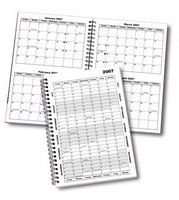Description of Course:
PHL 315 Bioethics (3) An in-depth examination of contemporary bioethical issues, including those surrounding the following areas:
1) the health professional-patient relationship
2) allocation of resources, social justice and health policy
3) personhood, death, foregoing life-sustaining treatment and euthanasia
4) reprogenetics (reproductive technologies, surrogacy, stem cell research, cloning and genetic engineering)
5) experimentation on and commodification of human beings
In the spirit of full disclosure, the instructor’s philosophical training is from the analytic tradition, (as opposed to the continental tradition) and she is a committed, practicing Christian.
Purpose of Course:• To provide a fundamental part of a Christian liberal arts education, integrating NCC’s biblical and Christian studies with rigorous philosophical study.
• To clarify bioethical concepts, arguments and positions, and their metaphysical and theological foundations through lecture, discussion, oral and written assignments.
• To engage students in formal ethical analysis and dialogue, with special focus on medical issues.
• To prepare students for effective citizenship and successful roles in ministry, teaching, counseling, science and technology, by giving them an opportunity to critically reflect on bioethical issues and theories.
• Finally, to assist and encourage any Christians in this class to grow in the cardinal and theological virtues, and find their voice and place of service in both the city of God and the city of Man.
Course Objectives:Upon completing this course, you will be able to:
• describe some of the central concepts and issues in the bioethics
• analyze and critically evaluate those concepts, arguments and positions.
• begin formulating your own positions on these issues, enabling you to write your own advance directive.
Textbook and Resource material:
Required:• Ethical Issues in Modern Medicine, 6e, edited by Steinbock, Arras, London. (Boston: McGraw hill, 2003).
• Meilander, Gilbert. Bioethics: A Primer for Christians. (Grand Rapids: Eerdmans, 1996).
• Handouts, library reserve items, online materials, and course blog.
Blog: http://NCCbioethics.blogspot.comStudents are invited to check the course blog for syllabus, updates to the course calendar, bibliographies, additional articles, quotes, and to continue conversations outside the classroom.
Instructor Information:
• Beth Bilynskyj, M.A. Philosophy, University of Notre Dame, 1979.
• 744-9343 (home phone; leave message and best time for me to return your call)
• bethb@valleycovenant.org (probably the best way for us to immediately connect)
• Office Hours: TBA
Please feel free to contact me. It is important that we end confusion and answer your questions as soon as possible. I also welcome your comments on the content of the course, and/or any suggestions you have to improve the class. Most of all, I want to get to know you, and invite you to be part of the Great Conversation, which is partially
.
Grading:
1. Two 6-8 page essays, in APA or MLA style (25% each, total 50%)
These essays are opportunities for you to explore bioethical topics in greater depth, and like all philosophical writing, they should be characterized by clarity, conciseness and completeness.
I will evaluate your essays on the following elements: topic, thesis, structure, logic and argumentation, use of literature/research, and mechanics (language, grammar, spelling, punctuation, etc.). I am always happy to read and comment on rough drafts given to me at least a week before the due date. All essays must be submitted in hard copy. Do not submit them as e-mail or attachments without prior permission.
Due Dates:
Essay #1: Tuesday, February 20, 1:00 pm
Essay #2: Thursday, May 3, 1:00 pm
2. Attendance, Preparation, Discussion (20%)
Philosophy has been described as a “great conversation,” so the bulk of our time together will be discussing the day’s assigned readings. Plan to spend at least two hours in preparation for every hour in class. Furthermore, don’t just underline, outline! This is the secret to being a successful student. Outlining is an excellent way to master material for any course, because it demands that you read actively, rather than passively.
As this is such a small seminar, its success depends upon you. Your class discussion/ participation grade will be calculated by the frequency of your contributions to class discussions, and the quality of your questions, observations and conclusions. The successful student will come to class prepared to offer at least one well-formed question, comment or criticism about the day’s readings.
NOTE: Should participation and discussion flag as a result of students not having done their readings, I reserve the right to give “pop” quizzes, which will be counted as part of this preparation/discussion grade.
Absence is the greatest damper for participation and discussion, so you should make every effort not to miss class. Everyone has something to contribute, so your presence is crucial! Being absent from class more than three times leads to significant grade reductions, i.e. A becomes A-, B+ becomes B, etc. Ten or more unexcused absences will result in automatic failure of the course. Please refer to the NCC attendance policy below.
2. Reflection paper (10%)
Students will be asked to write a 2-3 page paper evaluating utilitarian moral reasoning. You’re your point of view, to what degree, if any, should this type of reasoning figure in thinking about bioethical issues? These are not research papers. They are opportunities to analyze a method which is widely used today in bioethical debates. As usual, papers will be judged generally
according to clarity, conciseness and completeness, and in particular according to thesis, structure, logic and argumentation, and mechanics (language, grammar, spelling, punctuation, etc.).
4. Presentation (20%)
The course will conclude with presentations to be given to the class. Students are encouraged to consult Carole Levine’s Taking Sides: Clashing Views on Controversial Bioethical Issues, on reserve, and choose an issue they find compelling. They then have two options:
1) Work individually
Present two sides of the issue, devoting an hour to explaining and evaluating
the arguments on both sides.
2) Work together with a group (2-3 people)
Each person will devote 1/2 hour to explaining his position, and ½ hour to attacking and rebutting other position(s).
For example, Issue 14: Should Animal Experimentation Be Permitted?
YES: Jerod M. Loeb, “Human vs. Animal Rights” pp. 238-245
NO: Tom Reagan, “Ill-Gotten Gains” pp. 246-252
1) working individually: student A will summarize both articles and show how the arguments intersect.
2) working as a group: student B will “be” Loeb; student C will “be” Reagan. In one class period, B and C will present the arguments for each of their positions in ½ hour blocks. In another class period, B and C will each spend ½ hour on the offensive, attacking their opponent; and ½ hour on the defensive, rebutting their opponent’s attacks.
Consult the handout to be distributed Feb 15 for more details.
Academic Policies:
General undergraduate academic policies can be found starting on page 42 of the Undergraduate Academic Catalog 2006-2007 which is online at http://www.nwcc.edu/registrar/catalog/. The following specific policies are related to this particular course:
Class Attendance.Students are expected to arrive on time for class. Your participation grade will be affected if you are not in class or are late to class, for whatever reason. Excused absences will be allowed for activities such as serious illness, family or work emergencies, and recognized commitments with the College. The professor will determine the validity of the excuse. The student is responsible for knowing all information presented in the class(es) missed. If there are any problems, please let the professor know BEFORE the class.
Missed and Late Work
No make-up exams will be allowed except for circumstances granted a legitimate excuse status. In the event that a student cannot take an exam, he/she must contact the professor BEFORE the absence, and the professor will determine whether or not a legitimate excuse is warranted. Final exams are not given before their scheduled time unless permission has been secured from the Vice President for Academic Affairs in advance. In case of serious illness or an extreme family crisis the student should request the professor for an I (incomplete) grade. In such a case, the policy on make-up exams applies.
Due dates for major course requirements are included elsewhere in this syllabus and course calendar. In solidarity with Dr. Bollenbough, I reproduce the following from one of his syllabi:
“All products/assignments are due at those scheduled times, even if you have negotiated an ‘excused’ absence…late work received after the due date will receive half credit unless extenuating circumstances are negotiated and approved by the course instructor ahead of time. Halft credit will be given only if late work is received within one week of the original due date. No work will be accepted after this without extreme and extenuating circumstances approved by the instructor in writing. Incompletes will be assigned per protocol in the NCC catalog.”
Plagiarism and Academic Dishonesty.
Plagiarism, cheating, and any other form of academic dishonesty are not acceptable and will not be tolerated at NCC. A student reported to have engaged in any one of the above will be subjected to a disciplinary action according to the policy stated in the Undergraduate Academic Catalog.
Disability Services If you need special accommodations because of a documented disability whether it is psychiatric, learning, physical or sensory, you must process your request with Ms. Angela Doty, the designated Disability Officer. Contact Ms. Doty through the Student Development Office by phone at 684-7345, by e-mail at: angela@nwcc.edu, and/or refer to the Disability Services Handbook (available in the Student Development Office) for the policy and detailed procedures regarding disabilities. Contact should be made prior to the beginning of each semester so that the Disability Officer can make reasonable accommodation for each eligible student.



